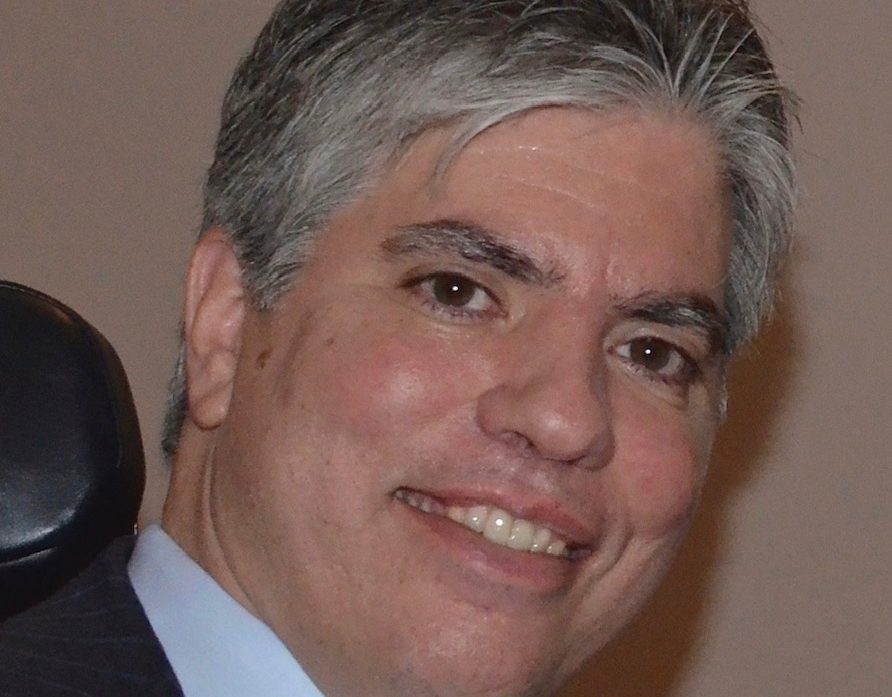I was 23 on July 26, 1990, when President George H.W. Bush signed the bipartisan Americans with Disabilities Act (ADA). A few years before, I had been diagnosed with a form of Muscular Dystrophy called facioscapulohumeral muscular dystrophy (FSHD), which leads to a gradual weakening of leg and back muscles.
While I was still walking unassisted, I knew that this would change over time. What was hard to fathom at that age was the significant physical, medical and emotional barriers that were in store.
Living with a disability requires grit and resilience. In the three decades since my diagnosis and the passage of the ADA, a lot has changed. I live a full life, with a wife, three teenagers, an active social life and a career in international affairs and human rights advocacy. I also live with chronic pain and have progressed from a cane, to a scooter and now a wheelchair.
There is a daily complement of aggravating factors that can lay me low without notice. Even with a strong support network, financial stability and health care, it’s hard.
Many in the United States are not blessed with family, health care or a job. Joe Biden has promised to close the “loophole” under which more than 300,000 Americans with disabilities are paid below the minimum wage. The severe economic circumstances of the majority of those with disabilities cannot be overstated.
The United States was once a leader on disability rights. The ADA laid a path for the adoption of the 2006 United Nations Convention on the Rights of Persons with Disabilities (CRPD), which is consistent with and based on U.S. law. One hundred seventy-seven countries have ratified the CRPD, the first comprehensive human rights treaty of the 21st century. Unfortunately, the United States Senate has failed to ratify CRPD, in accordance with the Trump administration’s position.
Four years ago, when President Trump mocked a disabled journalist on live television, it raised alarm bells for me and many others. Since then, Trump has failed to protect the vulnerable from this pandemic and has unceasingly tried to diminish access to health care for millions during this global health crisis.
For the 1 in 4 Americans who have some form of disability, the ADA has been a lifeline. Under the current administration, we are at serious risk of reversing the gains we have made in the last 30 years.
There are many important matters that voters will consider as they make their choice this November, but every single issue is profoundly impacted by the person who leads our nation. I can think of few issues that offer a clearer window into the character of a candidate than their attitude toward their fellow Americans with disabilities. For me and millions of others, the choice this November is clear.
I am hopeful that, if elected, Biden, a co-sponsor of the original ADA, will follow a different path. Last month, Biden tweeted, “Determination. Resilience. Grit. The strength to get up no matter how many times you’ve been knocked down … those are the values I learned growing up … .”
That phrase resonates with me and millions of other Americans who struggle with the daily challenges of living with a disability.
Maximilian Teleki is a member of the board and executive committee of the Tom Lantos Institute, a research and advocacy institution with a focus on human rights, anti-Semitism and minority rights in Central-Eastern Europe and the Balkans.



















